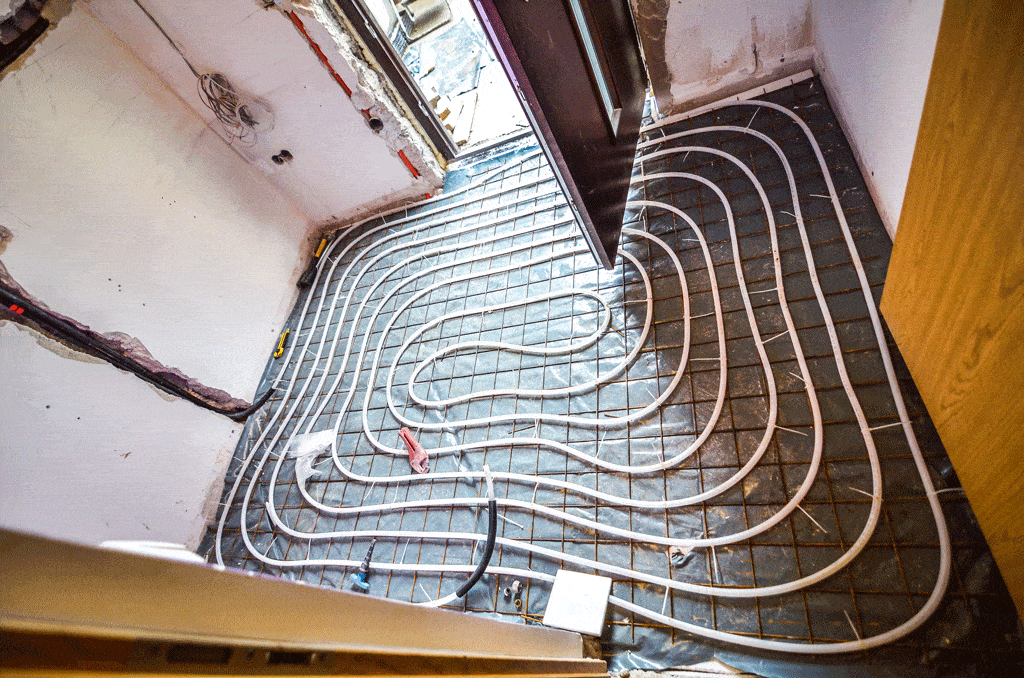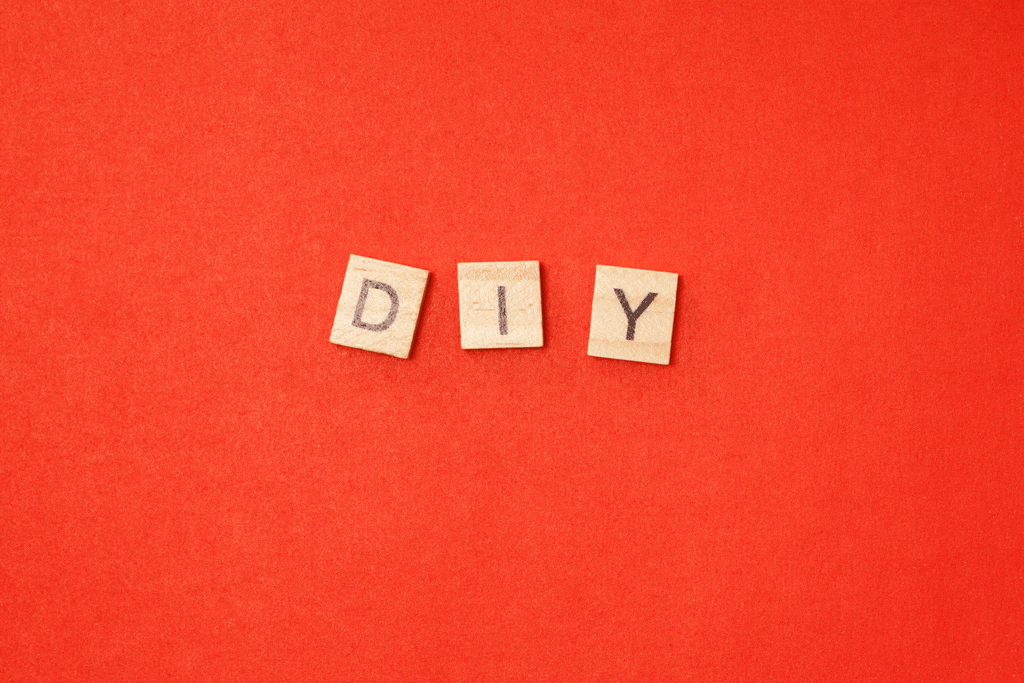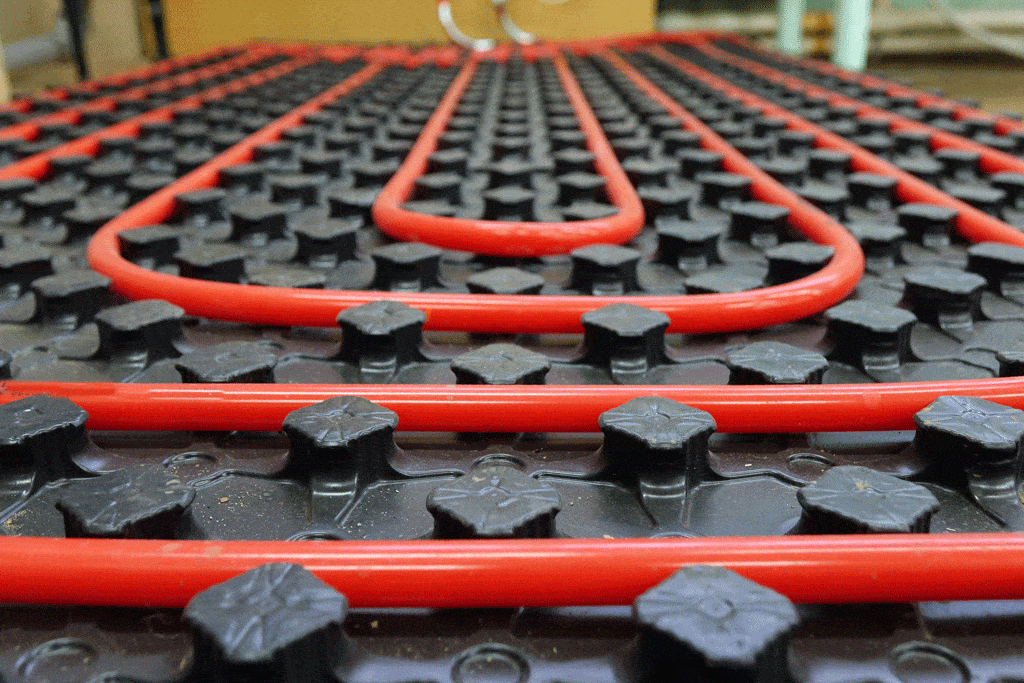
Effortless Hydronic Heating System Repair: A Homeowner’s Guide
Have you ever found yourself puzzled by your home’s hydronic heating system? You’re not alone.
As a homeowner, understanding the intricacies of hydronic heating system repair can be daunting, especially when you’re faced with a malfunction during the cold months.
In this article, we delve into the world of hydronic heating system repair, offering you a comprehensive guide to understanding, maintaining, and repairing these systems.
From basic troubleshooting to professional maintenance tips, we cover everything you need to ensure your home remains cozy and warm.
A Detailed Explanation of Hydronic Heating System Repair
Hydronic heating systems, known for their efficiency and even heat distribution, have become a popular choice among homeowners like you.
But what happens when something goes wrong?
What is Hydronic Heating System Repair?
Hydronic heating system repair involves diagnosing and addressing issues within a water-based heating system.
These systems, which are prevalent in many homes, especially those seeking efficient and comfortable heating solutions, require specific knowledge and tools for effective repair.
A hydronic system circulates hot water through pipes to radiators or underfloor heating systems, providing a consistent and comfortable heat distribution throughout your home.
When it comes to hydronic heating system repair, the process typically includes identifying and fixing problems such as leaks in the pipes, issues with the boiler, malfunctioning radiators, and ensuring the system’s pressure and temperature controls are functioning correctly.
It’s not just about fixing immediate problems; effective repair also involves assessing the system for potential future issues, ensuring longevity and efficiency.
Moreover, hydronic heating system repairs can range from simple tasks, like bleeding air out of the radiators, to more complex ones like replacing or repairing the boiler.
The complexity of the system means that while some minor maintenance tasks can be handled by a homeowner, more intricate repairs often require the expertise of a professional. They have the experience and specialized tools to diagnose issues accurately and provide safe, effective solutions.
Timely hydronic heating system repairs are crucial for the optimal performance of a hydronic heating system.
Neglecting necessary repairs can lead to decreased efficiency, higher energy costs, and even the potential for significant damage to your home. Therefore, understanding the basics of hydronic heating system repair and when to seek professional help is essential for any homeowner looking to maintain a comfortable and efficiently heated home.
Understanding Your Hydronic Heating System
Understanding Your System
The first step in any hydronic heating system repair process is comprehending how your system operates.
Hydronic heating systems function by using water heated by a boiler, which is then circulated through a network of pipes to radiators or underfloor heating tubes. This method of heating is favored for its efficiency and the comfortable warmth it provides.
The Boiler: Heart of the System
The Boiler’s Role: Central to the hydronic system is the boiler. It heats the water that circulates through the pipes.
The efficiency and functionality of your entire heating system largely depend on the boiler’s condition. Regular hydronic heating system repair of the boiler is crucial, including checking for any signs of wear and tear, ensuring it’s operating at the correct pressure, and confirming that the water temperature is consistent.
Circulation and Distribution
Pipes and Radiators: After the water is heated in the boiler, it moves through a series of pipes. These pipes lead to radiators or underfloor heating tubes, which then radiate the heat into your rooms.
It’s essential to ensure these pipes are well-insulated and free from leaks to maintain the system’s efficiency.
Radiators and Heating Efficiency:
The radiators or underfloor tubes play a vital role in distributing heat. They need to be properly maintained to ensure they’re effectively radiating heat.
This includes bleeding the radiators to remove any trapped air, which can hinder their heating efficiency.
Maintenance and Troubleshooting
Regular Check-ups: For optimal performance, regular hydronic heating system repair and check-ups are necessary. This includes monitoring the system’s pressure, checking for leaks or blockages in the pipes, and ensuring the radiators are heating evenly.
Troubleshooting Common Issues:
Some common issues in hydronic heating system repair include noisy pipes, uneven heating, and boiler malfunctions.
Identifying these problems early can prevent more significant issues down the line. For instance, noisy pipes might indicate air in the system, while uneven heating could be a sign of a blockage or leak.
By understanding these key components and their functions within your hydronic heating system, you can better identify when repairs are needed and ensure your system runs efficiently.
Regular maintenance and timely repairs are not just about fixing immediate problems; they’re about preserving the longevity and effectiveness of your heating system.
Photo By Fauzi Muda at Shutterstock
Common Issues in Hydronic Heating Systems
Air in the System
One of the most frequent issues in hydronic heating system repair is the presence of air within the pipes or radiators. This air can cause uneven heating and noisy operation.
The solution often involves bleeding the radiators to release trapped air, ensuring efficient heat distribution and quiet operation.
Leaky Pipes
Leaks in the hydronic system can lead to a loss of pressure and water damage. Seeking hydronic heating system repair services is crucial.
Regular inspections of pipes, especially in areas prone to wear and tear, can help catch leaks early. In some cases, sections of piping may need replacement to ensure the system’s integrity.
Boiler Malfunctions and Solutions
Boiler Issues
The boiler is the heart of the hydronic heating system, and its malfunctions can significantly impact the system’s performance. Common hydronic heating system repair problems include ignition issues, inconsistent heating, and pressure irregularities.
Troubleshooting Boiler Problems
Regular servicing of the boiler can prevent many of these issues. If you encounter boiler problems, checking the thermostat, pressure gauge, and pilot light can be a good start.
However, due to the complexity and potential safety hazards, significant boiler repairs should be handled by a professional.
Preventive Measures and Maintenance
Regular Maintenance: To prevent common issues, regular maintenance of your hydronic heating system is essential. This includes checking the boiler’s operation, inspecting pipes and radiators, and ensuring the system maintains the correct pressure.
Professional Inspections:
While some maintenance tasks can be performed by homeowners, annual inspections by a qualified technician are recommended. These professionals can perform more thorough checks, identify issues that may not be immediately apparent, and provide solutions that extend the life of your system.
By understanding and addressing these common issues, you can ensure the longevity and efficiency of your hydronic heating system.
Regular maintenance, coupled with prompt repairs, is key to avoiding disruptions in your home’s heating and ensuring a comfortable living environment.
The Importance of Preventive Maintenance in Hydronic Heating Systems
Regular Maintenance for Longevity
Engaging in regular preventive maintenance is crucial for the longevity and efficiency of your hydronic heating system repair.
This proactive approach not only helps in avoiding major repairs but also ensures that your system operates at its best, providing consistent and comfortable heating.
Monitoring Pressure Levels
Checking Pressure Levels: One of the key aspects of hydronic heating system repair and maintenance involves monitoring the pressure levels in your hydronic heating system. The correct pressure is essential for the system to function efficiently.
Too low or too high pressure can lead to various problems, including inefficient heating and potential damage to the system. Regularly checking the pressure gauge and adjusting as necessary can prevent these issues.
Inspecting Pipes and Radiators
Pipe and Radiator Inspection: Another critical maintenance task is inspecting the pipes and radiators.
Look for any signs of leaks, corrosion, or damage. Leaky pipes can lead to a loss of water and pressure, while damaged radiators may not heat effectively. Regular inspections can catch these problems early, making hydronic heating system repairs more manageable and less costly.
Ensuring Boiler Efficiency
Boiler Health Check: The boiler is the core component of your hydronic heating system. Ensuring it is in good working condition is essential for the overall health of the system.
This includes checking for any signs of wear and tear, ensuring the boiler fires up efficiently, and that it heats the water to the correct temperature. Regular hydronic heating system repair and servicing by a professional can help identify potential issues before they become major problems.
The Role of Professional Servicing
Professional Hydronic Heating System Repair Services: While many aspects of preventive maintenance can be handled by homeowners, professional servicing plays a vital role.
A qualified technician can perform a more thorough inspection of the system, including the boiler, pipes, and radiators. They can also conduct tests and adjustments that may be beyond the scope of typical DIY maintenance.
By adhering to a regular preventive maintenance schedule, you can significantly reduce the likelihood of needing extensive hydronic heating system repair. This not only saves you money in the long run but also ensures that your home remains warm and comfortable throughout the colder months.
Regular maintenance is the key to a reliable and efficient hydronic heating system.
Recognizing the Need for Professional Hydronic Heating System Repair
Assessing the Situation
In the realm of hydronic heating system repair, it’s essential to know when a situation calls for professional expertise.
While you, as a homeowner, can manage minor issues, more complex problems demand the skills and knowledge of a professional. Understanding the difference between a DIY fix and a professional job is crucial for maintaining the longevity and efficiency of your system.
Minor Issues vs. Major Problems
Handling Minor Repairs
Some issues in a hydronic heating system, like bleeding radiators or adjusting the thermostat, can often be handled without professional assistance.
These tasks require minimal technical knowledge and can be done safely by most homeowners.
Identifying Major Concerns
However, when you encounter more significant problems, such as persistent leaks, boiler malfunctions, or a complete system breakdown, it’s time to call in a professional.
These issues can be complex, involve safety risks, and require specialized tools and knowledge for proper diagnosis and repair.
The Expertise of a Professional
Technical Knowledge and Experience
Professionals in hydronic heating system repair bring a wealth of technical knowledge and experience. They can quickly diagnose issues, understand the intricacies of different models and systems, and provide efficient, effective repairs.
Safety Considerations
Safety is a paramount concern when dealing with complex heating systems. Professionals are trained to handle potentially hazardous situations, such as dealing with gas boilers or high-pressure systems, ensuring repairs are conducted safely.
Long-Term System Health
Preventive Measures
A professional can do more than just fix immediate problems. They can also advise on preventive measures and maintenance routines to prolong the life of your system.
Ensuring System Longevity
By addressing issues thoroughly and professionally, you can avoid recurring problems and ensure the long-term health of your hydronic heating system.
Professional intervention can often mean the difference between a quick fix and a lasting solution.
Understanding when to call a professional for hydronic heating system repair is a critical aspect of maintaining your system. While minor issues can be a DIY project, major problems require the expertise of a professional to ensure safety, efficiency, and longevity of your heating system.
Photo By Hamara at Shutterstock
Empowering Homeowners with DIY Hydronic Heating System Maintenance
Embracing DIY Maintenance:
For the hands-on homeowner, engaging in DIY maintenance is a proactive way to keep your hydronic heating system running smoothly.
While some aspects of heating system repair require professional expertise, there are several tasks you can confidently handle to maintain the efficiency and longevity of your system.
Regular System Monitoring
System Check-ups: Regularly checking your hydronic heating system can prevent minor issues from escalating. This includes listening for unusual noises, monitoring the system’s pressure gauge, and observing the boiler’s pilot light and flame.
These simple observations can alert you to potential issues before they require major repairs.
Radiator Maintenance
Bleeding Radiators: Air trapped in radiators can hinder their efficiency. Learning how to bleed your radiators is a straightforward task that can significantly improve the performance of your heating system.
This process involves releasing trapped air from the radiators, ensuring they heat up properly and distribute heat evenly.
Inspecting and Sealing Leaks
Leak Detection and Repair: Regularly inspecting your system for leaks is crucial. Small leaks can often be sealed with appropriate plumbing tape or sealant.
However, if you’re unsure or the leak is significant, it’s wise to consult a professional.
Boiler Care
Basic Boiler Care: While in-depth boiler maintenance should be left to professionals, you can perform basic care such as ensuring the area around the boiler is clean and free from obstructions.
Also, regularly checking the boiler’s pressure gauge and consulting the manual for any specific maintenance tasks can be helpful.
Seasonal Preparations
Preparing for Winter: Before the onset of cold weather, it’s beneficial to run a complete check of your hydronic heating system.
This includes ensuring all radiators are heating up, the boiler is functioning efficiently, and the system pressure is at an optimal level.
The Value of a Maintenance Schedule
Creating a Maintenance Schedule: Keeping a regular maintenance schedule helps in timely identification and resolution of minor issues.
This proactive approach not only extends the life of your hydronic heating system but also ensures it runs efficiently, providing comfortable warmth throughout your home.
By embracing these DIY tips, homeowners can play an active role in the upkeep of their hydronic heating systems. Regular maintenance not only prevents disruptions in heating but also saves on costly repairs in the long run.
Remember, while DIY maintenance is empowering, recognizing when to call in a professional is equally important for complex issues.
Advanced Insights into Hydronic Heating System Repair
Understanding Advanced System Components
The Role of Advanced Controls in Hydronic Systems
Modern hydronic heating systems often incorporate advanced control systems. These include programmable thermostats, zone control valves, and smart home integration.
Understanding how these components interact with your system can significantly enhance efficiency and comfort. Programmable thermostats allow for precise temperature control and scheduling, while zone controls enable you to heat different areas of your home as needed, reducing energy waste.
Upgrading to High-Efficiency Boilers
A significant aspect of hydronic heating system repair and maintenance is considering the efficiency of your boiler. High-efficiency boilers are designed to use less fuel and convert more of that fuel into usable heat.
Upgrading to a high-efficiency model can reduce energy costs and improve overall system performance.
System Expansion and Integration
As homes evolve, so do their heating needs.
Expanding your hydronic heating system to accommodate home additions or integrating it with renewable energy sources like solar panels are advanced considerations. These expansions not only improve system capacity but also contribute to a more sustainable and cost-effective home heating solution.
Innovations in Hydronic Heating
Exploring New Technologies
The field of hydronic heating is continually evolving, with new technologies emerging to improve system performance and user experience.
Innovations like self-regulating underfloor heating and advanced boiler technologies are changing how homeowners approach hydronic heating system repair and upgrades.
Smart Home Integration
Integrating your hydronic heating system with smart home technology is a forward-thinking approach to heating management.
Smart systems can learn your heating preferences, adjust temperatures based on occupancy, and provide remote control options, offering unparalleled convenience and efficiency.
Environmental Impact and Sustainability
Eco-Friendly Heating Solutions
In the context of hydronic heating system repair and maintenance, considering the environmental impact is increasingly important.
Eco-friendly solutions like low-temperature systems, which operate efficiently with renewable energy sources, are gaining popularity. These systems not only reduce your carbon footprint but can also be more cost-effective in the long run.
Sustainable Practices in System
Maintenance: Adopting sustainable practices in maintaining your hydronic heating system can have a significant environmental impact.
This includes using environmentally friendly antifreeze solutions in the system, opting for recyclable parts, and choosing energy-efficient components.
By delving into these advanced insights and considering the future of hydronic heating technology, homeowners can take a more proactive and informed approach to their hydronic heating system repair and maintenance.
These considerations not only enhance the system’s performance but also align with modern trends in energy efficiency and environmental sustainability.
Also read: Air Conditioning Repair: The Ultimate Guide To Keeping Your Home Cooler
Enhancing Your Home with Hydronic Heating System Upgrades
Innovative Upgrades for Efficiency and Comfort
Integrating Renewable Energy Sources
One of the most impactful ways to enhance your hydronic heating system is by integrating it with renewable energy sources.
Solar thermal panels, for instance, can be used to heat the water in your system, reducing reliance on traditional energy sources and lowering utility bills. This integration not only boosts the efficiency of your hydronic heating system but also aligns with eco-friendly practices.
Advanced Insulation Techniques
Improving the insulation of pipes and radiators in your hydronic heating system can significantly reduce heat loss.
Using modern insulation materials and techniques ensures that more heat is retained within the system and delivered to your living spaces, enhancing overall efficiency and comfort.
Smart System Monitoring and Maintenance:
Implementing smart monitoring systems can revolutionize how you maintain your hydronic heating system. These systems provide real-time data on system performance, alert you to potential issues before they escalate, and can even suggest optimal maintenance schedules.
This proactive approach to system care can prevent costly repairs and extend the lifespan of your system.
Creating a Healthier Home Environment
Improving Indoor Air Quality
Unlike forced-air systems, hydronic heating doesn’t circulate dust and allergens throughout your home. However, you can take this a step further by incorporating air purifiers and humidity control systems into your home.
These additions work alongside your hydronic heating system to create a healthier living environment, especially beneficial for those with allergies or respiratory issues.
Noise Reduction Strategies
Hydronic systems are generally quieter than other heating systems, but there’s always room for improvement.
Implementing noise reduction strategies, such as using quieter pumps or adding sound-dampening materials around the boiler, can make your home’s heating system virtually silent.
Tailoring the System to Your Lifestyle
Customizable Heating Zones
Modernizing your hydronic heating system with customizable heating zones allows for tailored temperature control in different areas of your home.
This not only enhances personal comfort but also contributes to energy savings, as you only heat the spaces in use.
Remote Control and Automation
With the advent of smart home technology, integrating your hydronic heating system with home automation systems can provide unparalleled convenience.
You can adjust temperatures, set schedules, and monitor your system remotely, ensuring your home is warm and welcoming whenever you need it to be.
By considering these upgrades and enhancements, you can transform your hydronic heating system into a more efficient, comfortable, and health-conscious component of your home.
These advancements not only improve the quality of your living environment but also contribute to the overall value of your property.
Photo By ANDREY-SHA74 at Shutterstock
Mastering Hydronic Heating System Efficiency and Reliability
Optimizing System Performance for Maximum Efficiency
Enhancing Boiler Efficiency
The boiler is the powerhouse of your hydronic heating system, and optimizing its efficiency is crucial.
Regular servicing, including cleaning and checking for wear and tear, can significantly improve its performance. Upgrading to a condensing boiler, which utilizes heat from exhaust gasses, can also enhance efficiency and reduce energy consumption.
Fine-Tuning System Calibration
Calibrating your hydronic heating system for optimal performance involves adjusting the flow rates and temperatures to match your home’s specific heating needs.
This fine-tuning ensures that each area of your home receives the right amount of heat, enhancing overall system efficiency and comfort.
Implementing High-Efficiency Circulation Pumps
Replacing older circulation pumps with high-efficiency models can lead to substantial energy savings.
These modern pumps adjust their speed based on real-time heating demand, reducing electricity usage and enhancing the overall efficiency of your hydronic heating system.
Ensuring Long-Term System Reliability and Durability
Regular System Health Checks
To maintain the reliability of your hydronic heating system, regular health checks are essential. This includes inspecting for leaks, checking valve functionality, and ensuring that the expansion tank is properly pressurized.
These checks help in early identification of potential issues, preventing costly repairs.
Addressing Water Quality in the System
The quality of water in your hydronic heating system plays a significant role in its longevity. Implementing water treatment solutions, such as adding inhibitors to prevent corrosion and scaling, can prolong the life of your system and maintain its efficiency.
Strategies for Preventing System Downtime
To avoid unexpected system downtime, especially during colder months, proactive maintenance is key. This includes pre-winter check-ups, timely replacement of worn-out parts, and ensuring that the system is properly shut down and restarted during periods of non-use.
Leveraging Technological Advancements for Enhanced Control
Adopting Smart Thermostats and Sensors
Integrating smart thermostats and sensors into your hydronic heating system offers enhanced control over your home’s heating.
These devices allow for precise temperature adjustments, learning your preferences over time, and can even be controlled remotely, providing both convenience and energy efficiency.
Utilizing Predictive Maintenance Tools
Modern predictive maintenance tools use data analytics to forecast potential system issues before they occur.
By leveraging these tools, you can schedule maintenance for your hydronic heating system more effectively, ensuring it remains in top condition and reducing the likelihood of unexpected breakdowns.
By mastering these aspects of system efficiency and reliability, you can ensure that your hydronic heating system not only performs optimally but also stands as a dependable source of comfort in your home for years to come.
These strategies emphasize the importance of proactive maintenance, technological integration, and system optimization in maintaining a high-performing and reliable heating solution.
Also read: A Guide To Indoor Air Quality Testing In Your Home
Navigating Seasonal Changes with Your Hydronic Heating System
Preparing for Seasonal Shifts
As seasons change, so do the demands on your hydronic heating system. Preparing your system for these shifts is crucial for maintaining efficiency and comfort.
In the transition to colder months, it’s important to ensure that your system is ready to handle increased heating demands. This includes checking that all components are functioning properly and making necessary adjustments to the system settings.
Winterization of the Hydronic System
Winter brings the greatest demand on your hydronic heating system.
Ensuring that your system is properly winterized can prevent common cold-weather issues such as frozen pipes or inefficient heating. This involves checking the antifreeze levels in the system, insulating exposed pipes, and ensuring that the heating circulates effectively throughout your home.
Spring Maintenance for Longevity
As the heating season winds down, spring maintenance is key to prolonging the life of your hydronic heating system.
This is an ideal time to perform a thorough check-up, including cleaning the boiler, checking for any wear and tear from the winter months, and making repairs as needed. This proactive maintenance ensures your system is in good condition and ready for the next heating season.
Adapting to Climate Variability
With changing climate patterns, weather can be unpredictable, placing varying demands on your heating system.
Adapting your hydronic heating system to respond to these fluctuations involves using programmable thermostats and smart controls that can adjust the heating based on real-time weather conditions and indoor temperature needs.
Ensuring Continuous Comfort
The primary goal of your hydronic heating system is to provide continuous comfort, regardless of external temperature changes.
This involves regularly checking that the system distributes heat evenly and efficiently, and making adjustments as needed to accommodate fluctuating outdoor temperatures.
Energy Efficiency in Changing Climates
Energy efficiency is a significant consideration, especially in climates with wide temperature variations.
Upgrading insulation, sealing drafts, and using energy-efficient components can help your hydronic heating system operate more efficiently, reducing energy consumption and costs, even as weather patterns shift.
By effectively navigating seasonal changes and adapting to climate variability, you can ensure that your hydronic heating system remains efficient, reliable, and capable of providing consistent comfort throughout the year. This approach not only enhances the performance of your heating system but also contributes to its durability and efficiency in the long term.
Top 5 Maintenance Tips for Hydronic Heating System Repair
These insights are designed to help you maintain your system efficiently, ensuring it provides consistent warmth and operates at peak performance.
1. Regular System Flushing
Flushing the System: Over time, your hydronic heating system can accumulate sludge and debris, which can hinder its efficiency.
Regular flushing of the system helps remove these build-ups, ensuring smooth and efficient operation. This process involves draining the system, cleaning it, and refilling it with fresh water.
2. Upgrading System Components
Component Upgrades: Upgrading components like thermostats, valves, and even the boiler can significantly improve the efficiency of your system.
Modern, energy-efficient components not only enhance performance but can also lead to cost savings in the long run.
3. Balancing the Radiators
Radiator Balancing: Ensuring that all radiators in your home are properly balanced is key to efficient heating.
Balancing involves adjusting the valves on each radiator to ensure an even distribution of heat throughout your home, eliminating cold spots and optimizing comfort.
4. Insulating Pipes
Pipe Insulation: Insulating the pipes of your hydronic heating system is a simple yet effective strategy.
Proper insulation reduces heat loss as water travels from the boiler to the radiators, enhancing overall system efficiency.
5. Smart Control Integration
Implementing Smart Controls: Integrating smart controls into your hydronic heating system allows for better temperature management and can lead to energy savings.
Smart thermostats and zone controls enable you to heat your home more efficiently, adjusting temperatures in different areas as needed.
By implementing these top five ideas, tips, and strategies, you can ensure that your hydronic heating system operates at its best. Regular maintenance, system upgrades, and smart integrations not only enhance the performance of your system but also contribute to its longevity and reliability.
Remember, while some of these strategies can be DIY projects, others may require the expertise of a professional, especially when it comes to significant upgrades or system modifications.
One Hour Air Conditioning & Heating of Dallas: Your Go-To for Hydronic Heating System Repair Experts
Expertise in Hydronic Heating
In the Dallas area, One Hour Air Conditioning & Heating of Dallas is renowned for its expertise in hydronic heating system repair.
Their team of seasoned professionals is equipped with the knowledge and tools necessary to handle any hydronic system issue, ensuring that your heating system functions optimally.
Comprehensive Repair and Maintenance Services
A Full Range of Services: One Hour Air Conditioning & Heating offers a comprehensive suite of services for your hydronic heating system.
This includes routine maintenance checks, emergency repairs, system diagnostics, and efficiency evaluations. Their goal is to ensure that your system not only runs smoothly but also operates at peak efficiency, saving you money and enhancing comfort.
Local Service, Exceptional Quality
Serving the Dallas Community: For residents in Addison, Allen, Carrollton, Dallas, Frisco, Irving, Lewisville, McKinney, Plano, Richardson, and The Colony, TX, One Hour Air Conditioning & Heating represents a local hydronic heating system repair solution with exceptional quality.
Their understanding of local climate challenges and specific heating needs makes them particularly adept at servicing the community’s hydronic heating systems.
Easy Accessibility and Reliable Support
Just a Call Away: Accessibility is key when it comes to heating system repairs. One Hour Air Conditioning & Heating understands this, offering easy and prompt hydronic heating system repair service access.
By simply calling 469-598-0524, homeowners can quickly arrange for professional assistance with their hydronic heating system repair needs.
Trusted by the Community
Building Trust with Quality Service: The reputation of One Hour Air Conditioning & Heating in Dallas is built on a foundation of trust and quality hydronic heating system repair service. Their reviews and ratings reflect their commitment to excellence and customer satisfaction.
Homeowners looking for reliable hydronic heating system repair services can check out these testimonials to understand why One Hour Air Conditioning & Heating is a preferred choice in the Dallas area.
By choosing One Hour Air Conditioning & Heating of Dallas for your hydronic heating system repair, you’re opting for a hydronic heating system repair service provider that combines local expertise with high standards of professionalism and customer care.
Whether it’s routine maintenance or urgent repairs, their team is ready to ensure your home remains warm and comfortable.
.Conclusion: Navigating the World of Hydronic Heating System Repair
The journey of hydronic heating system repair can indeed seem daunting at first.
However, armed with the right knowledge and resources, you can ensure that your system not only runs efficiently but also stands the test of time.
Whether it’s handling routine maintenance tasks or seeking professional assistance for more complex issues, a deep understanding of your hydronic heating system is fundamental to maintaining a warm and comfortable home environment.
One of the key takeaways in managing hydronic heating system repair is the empowerment that comes from understanding your system.
Knowing how your system works, recognizing signs of potential issues, and being aware of when to call in professionals are all crucial aspects of effective system management. This knowledge not only helps in timely addressing repairs but also in making informed decisions about maintenance and upgrades.
We would love to hear about your experiences with hydronic heating system repair. Every home and system is unique, and so are the challenges faced.
Sharing your stories can provide valuable insights and solutions to others facing similar situations. What challenges did you encounter, and how did you overcome them? Your shared experiences can be a rich resource for the community.
Do you have stories, tips, or questions about hydronic heating system repair?
We invite you to share them in the comments below. Your contributions not only enrich our collective understanding but also help in building a community of informed and proactive homeowners. Let’s engage in a conversation that helps us all in maintaining efficient, reliable, and comfortable heating systems in our homes.
While hydronic heating system repair may have its complexities, it’s a manageable and rewarding endeavor.
With the right approach, you can ensure that your heating system remains a reliable source of comfort for years to come. Share your experiences and join the conversation to help others navigate the world of hydronic heating system repair.
Photo By Sergii Gnatiuk at Shutterstock
FAQs
1.How often should I service my hydronic heating system?
Regular servicing, ideally annually, is recommended to ensure optimal performance and longevity of your system.
2.Can I perform hydronic heating system repairs myself?
While basic maintenance can be done by homeowners, complex repairs should be handled by professionals to avoid further damage.
3.What are the common signs of a failing hydronic heating system?
Uneven heating, strange noises, and visible leaks are common indicators that your system may need repairs.
4.How long does a hydronic heating system typically last?
With proper maintenance, these systems can last 15-20 years or more.
5.Is it cost-effective to repair an old hydronic heating system?
It depends on the extent of the repairs. Sometimes, replacing an outdated system can be more cost-effective in the long run.
6.What should I do if my hydronic heating system starts leaking?
Turn off the system and call a professional immediately to prevent water damage and further complications.
7.Can hydronic heating systems be upgraded for better efficiency?
Yes, there are several upgrades available, such as more efficient boilers and smart thermostats, to improve the system’s efficiency.
8.Are there any DIY maintenance tips for hydronic heating systems?
Regularly checking for leaks, bleeding radiators, and monitoring the system’s pressure are some DIY maintenance tasks.
9.How do I know if my hydronic heating system needs flushing?
If you notice poor heating performance or discolored water when bleeding radiators, your system might need flushing.
10.Can hydronic heating systems be integrated with renewable energy sources?
Yes, these systems can be adapted to work with solar panels or other renewable energy sources for improved efficiency and sustainability.
See our most recent blog on this topic here.
Check out our reviews here
Photo By JGA at Shutterstock
Check out a tip here









